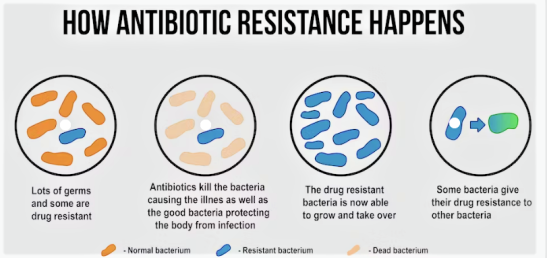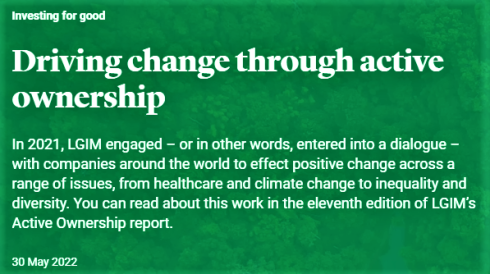The FT editorial board reports the World Health Organisation’s warning that antimicrobial resistance (AMR) is a top global public health threat
Bacterial infections that are resistant to antibiotics caused 1.3mn deaths worldwide in 2019, more than malaria; by 2050 the toll is expected to reach 10mn a year (Lancet).
Attention has been focussed largely on overprescription of antibiotics by doctors, leading to excessive consumption by humans, but overuse in largescale farming and livestock production can fuel resistance and he emergence of drug-resistant superbugs in people.
Though the pharmaceutical industry has committed $1bn to fighting drug-resistant superbugs, it prefers funding more lucrative medicines. No new classes of antibiotics have been brought into circulation since the 1980s.
Higher temperatures due to climate change are making outbreaks of various illnesses – which require antibiotic treatment – more common and more severe; flooding can spread disease through sewage contamination. Poorer countries in Africa and Asia – often worst affected by climate change — will again be among the hardest hit.
Public Interest Research Group graphic, link: https://pirg.org/updates/update-consumers-medical-professionals-and-ranchers-urge-mcdonalds-reduce-antibiotic/
Three FT journalists now report that two of Europe’s largest asset managers will this week try to increase the pressure on McDonald’s to reduce the use of antibiotics in its food supply chain, highlighting what they say is the risk antimicrobial resistance poses to shareholder returns and the wider economy.
Legal & General Investment Management, Amundi and other institutions are backing a resolution at its annual meeting, calling on the group to “institute a policy that the company comply with WHO guidelines on the use of medically important antimicrobials in food-producing animals”.
In another FT article, Andrew Jack sees the resolution, which has been tabled by Shareholder Commons, a non-profit advocacy organisation, as a sign of the growing concern among some investors about the systemic impact and broader economic threat of antimicrobial resistance.
The World Bank has predicted that by 2050, drug-resistant infections could cause global economic damage on par with the 2008 financial crisis due to adverse impacts on GDP, global poverty, world trade, healthcare costs and ‘livestock output’.
This “silent pandemic” requires the intervention of investors and governments at a global level. But as yet, McDonald’s is standing firm and urging shareholders to reject the latest resolution, saying it has a “strong record of responsible antibiotic use” across its supply chain.
o



Leave a comment